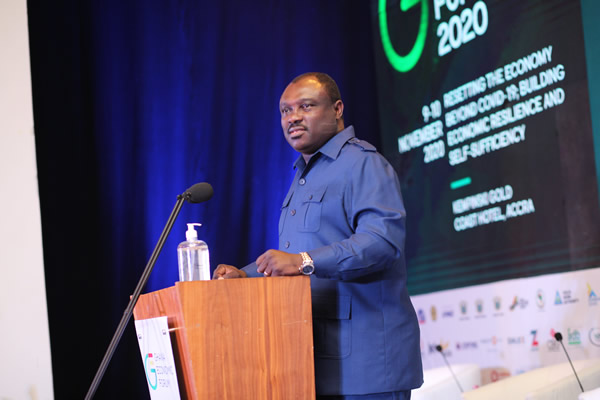Trade Ministry ‘created 10,000 jobs’ out of coronavirus pandemic- Ahomka-Lindsay
With an economy battered by a global pandemic, the Trade and Industry Ministry says it still managed to squeeze water out of stone.
The Deputy Trade and Industry Minister, Robert Ahomka-Lindsay, said at a gathering of business leaders and policymakers at the Ghana Economic Forum that the ministry created 10,000 jobs out of the pandemic.
He explained the jobs were created through the production of personal protectivepEquipment (PPE) and hand santisers.
The government engaged companies to diversify into the production of face mask that suddenly became essential in the fight against covid-19, the deputy minister said at the event organised by B&FT newspaper in Accra on Monday.

Giving an example, he said several garment manufacturing companies veered into the mass production of PPEs, a product that guaranteed returns more than the companies’ original focus, be it a T-shirt company.
The value of this new business, he explained, was that many of these companies, once struggling, were able to pay off their dreaded debts.

Mr. Ahomka-Lindsay used this example of making lemonade out of life’s bitter lemons to stress his point that the Akufo-Addo government had been focused on building a resilient economy even before covid-19.
He said the government after it was sworn into office in 2017 set out to inject some discipline in a macroeconomic environment that had “gone out of whack”
Businesses loathe unpredictability, he stressed and mentioned fluctuating exchange rate, poor power supply, as some of the dithering issues that scared people from doing business.
Adding another brick after sanitising the macroeconomic space, he said the government was helping the private sector to move into building industries in what is commonly known as ‘1 District, 1 factor’.
This strategy, he said, was “not an Einstein moment” because no country in the world has developed without an industrial transformation. “It’s just not possible” he claimed.
Figures from the Trade Ministry indicate that 232 out of 260 factories under its flagship One-District, One-Factory (1D1F) industrialisation programme are near completion with some operating at full capacity.
As of October 9, 2020, the ministry said through the 1D1F government’s initiative, 76 projects were completed and in full operation.
Mr Ahomka-Lindsay said supporting the setting up of local factories helped address social problems such as rural-urban migration.
He stressed that in this industrialisation agenda, it was not the government that was building the factories because historically government was handicapped at managing businesses.
The Ghana Economic Forum is organised by the Business and Financial Times (B&FT).
In its 9th edition, the forum’s 2020 theme is ‘resetting the economy beyond covid-19; Building economic resilience and self-sufficiency’
It gathered a cream of Ghana’s business leaders into a discussion which the organisers believe should drive policy and strategy.
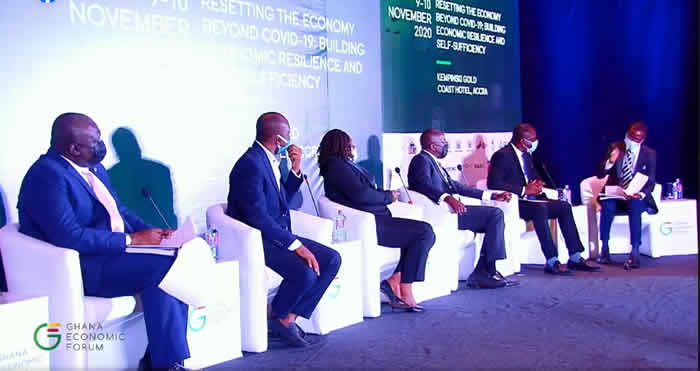
The two-day forum was addressed by Finance Minister, representing President Nana Akufo-Addo. It also brought together business leaders and stakeholders like the Senior Minister Yaw Osafo Maafo, Deputy Trade and Industry Minister, Robert Ahomka-Lindsay, and MD of Fidelity Bank, Julian Kingsley Opuni.
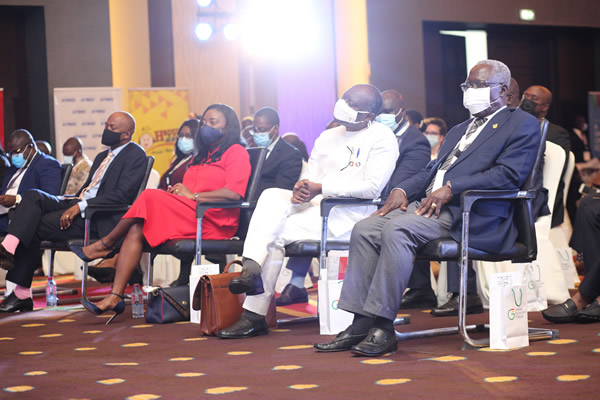
Photo: Finance Minister Ken Ofori-Atta [in white] and Senior Minister, Yaw Osafo Maafo [extreme right]
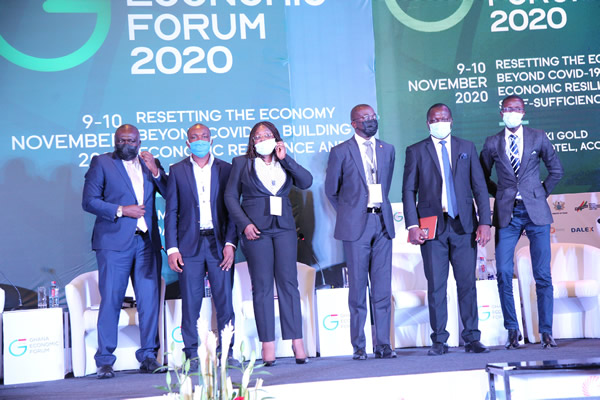
L-R: Head of Research at Bank of Ghana, Philip Abradu Otoo; University of Ghana lecturer Prof. Godfred Alufar Bokpin; Chief Executive of Hollard Group Mrs. Patience Akyianu; MD of Fidelity Bank, Julian Kingsley Opuni, Mr. Deputy CEO, Ghana Association of Bankers, John Awuah and Moderator, Bernard Avle of Citi FM.
Earlier, the Managing Director of the Ghana Economic Forum, Dr. Godwin Acquaye, MD, highlighted the influential role of the Forum as it marked its 9th anniversary.
“Over the past eight years, the Ghana Economic Forum has evolved into an influential platform for businesses, government, the international donor community and civil society to come together to shape the economic agenda of the country.”
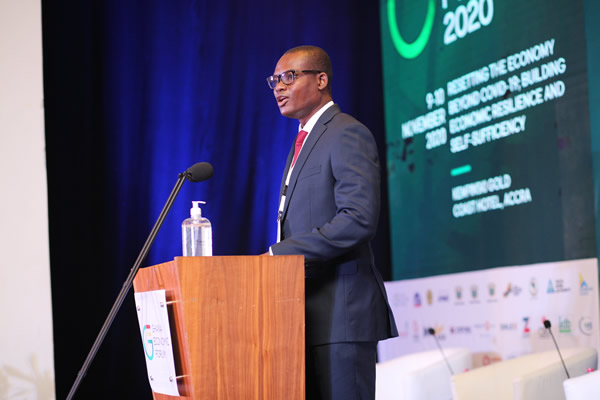
“These meetings are important points of connection for all our communities. It is your opportunity to take advantage of the platform we have built – not only to bring you together, but also to catalyse action from your ideas.”



